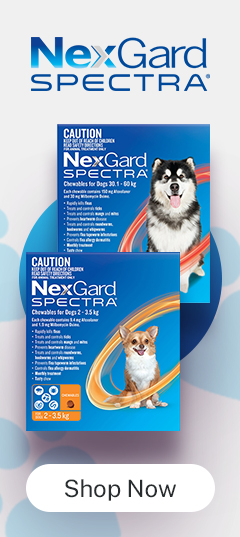Seeing your pet in pain may be pretty frightening, especially if you're not sure whether or not it's an emergency. When in doubt, always contact your veterinarian or the local animal hospital. But to help you be better prepared, we’ve listed the top 10 pet emergencies seen in veterinary clinics around the nation.
1. Persistent Vomiting & Diarrhea
Vomiting and diarrhea are sometimes the first symptoms of a digestive disturbance. But, you should be cautious and most likely take action if it is chronic or if it coexists with other symptoms like decreased appetite, abdominal pain, and/or fatigue. Moreover, it might be a symptom of parasitic infection, dietary allergies, or other illnesses. But, if your pet eats anything poisonous, develops an obstruction in the digestive tract, or contracts a viral or bacterial infection, their lives could be in danger.
It's crucial to get your pet to the vet as soon as possible since persistent vomiting and diarrhea can cause dehydration and metabolic problems, especially in small or younger pets.
2. Trauma
The majority of the time, trauma from falling from windows, leaping from great heights, getting hit by cars, or fighting with other animals will certainly necessitate a quick trip to the emergency vet.
All of these could result in soft tissue trauma (injuries to the skin, muscles, tendons, and ligaments), fractures, lacerations, and/or bleeding foci. Hence, if at all possible, try to limit your pet's movements while in transit and apply pressure to these bleeding points.
3. Seizures
Uncontrollable tremors and trembling, loss of consciousness, paddling with the legs, and maybe losing control of the bowels or the bladder are all symptoms of a seizure. Epilepsy is the most typical cause of seizures in canines and felines. Even if your pet has epilepsy, not all
seizures will be life-threatening. Your pet may need to see your veterinarian if it has several seizures in a 24-hour period or if one lasts for more than a few minutes.
4. Respiratory Distress
When the lungs or airway are damaged, increased respiratory effort frequently happens. Trauma, allergic responses, heart failure, poisons, infectious diseases, cancer, or air leaks can all cause this condition in pets. Any breathing issue should be treated as a serious issue that needs to be evaluated right away by a veterinarian. Radiographs are frequently required to assess the lungs and airways.
5. Choking and Difficulty Breathing
When an animal can't breathe, it's never a good idea to "wait and see," just like it is with people. To keep the animal safe, never attempt to open the airway. Instead, study animal CPR. Even if CPR restores the animal's breathing, you should still take it to an emergency room to make sure it is secure. The best-qualified individual to check for an internal injury that may have contributed to the animal's breathing problems is a veterinarian.
6. Difficulty Urinating
If your dog or cat is having trouble peeing, it may be due to a buildup of stones or crystals in their bladder that are more serious than a typical UTI. It may indicate serious inflammation, cancer, or blood clots, all of which call for rapid veterinarian care.
7. Poisoning/Indiscrete Ingestion
Call your veterinarian right away if you have any concerns that your dog or cat may have consumed something harmful. Chocolate, grapes/raisins, human pharmaceuticals, lilies, rat poisons, and slug poisons are the most frequent causes of poisoning that we find. Some of these poisonings can be successfully treated if discovered right away, but if your pet's digestive system begins to digest and absorb the poisons, they may become life-threatening. Learn more about typical poisons and how to spot someone who has been poisoned.
8. Allergic Reactions
Hives, swelling, fur loss, and chronically itchy skin can all be symptoms of an allergic reaction. This necessitates veterinarian attention, but once more severe symptoms like breathing difficulty, excessive vomiting, or lethargy appear it turns into a true emergency. Lethargy, for instance, can be a potentially deadly initial symptom of tick paralysis.
9. Blood from Extremities
It's crucial to determine the cause if there is blood in the sputum, vomit, feces, nose, ears, eyes, or mouth. Maybe the animal was hurt while it was out of your sight and needs urgent care to survive. Blood is never something to take lightly. If blood from an animal is discovered, get emergency attention immediately. There can be hidden interior wounds.
10. Refusal to Drink
Animals continuously hydrate themselves. Take the animal to the veterinarian if it hasn't drunk anything in the last 24 hours despite having access to water. Even if the water dish is dirty, an animal will ultimately drink from it, thus it's crucial to know your animal and maintain its cleanliness. Any resistance that goes on for more than 24 hours is a sign of an urgent condition.
Bottom line:
There are many potential common pet emergencies to be aware of, however just because a pet emergency can happen it doesn't mean it necessarily will.
It's vital to be ready, but try not to worry too much about them since if you do, you and your pet won't be able to enjoy each other's company. The best course of action is to take your time finding a reputable emergency veterinarian before you ever need one. This way, if something goes wrong in the future, you'll know whom to call or where to go.










































































